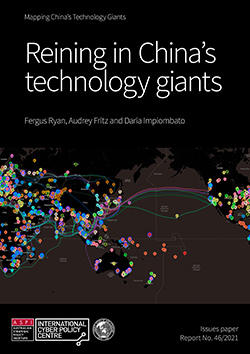ASPI appoints inaugural director of Washington DC office
ASPI is delighted to announce the appointment of Mr. Mark Watson as the inaugural director of ASPI’s Washington DC office.
With more than 30 years’ experience in national security and international relations, Mark comes to ASPI with expertise in policy analysis, stakeholder mapping and engagement, strategic planning and business management, and public-private partnerships in the national security community.
Mark is a trained Chinese linguist, holding degrees in Law and History from the University of Sydney, an Honours degree in Strategic Studies from Deakin University and a Masters degree in Public Policy from the University of New England. He also completed post-graduate studies in the Economic and Civil Law of the People’s Republic of China at the University of Hong Kong, and is a graduate of the Senior Executives Leadership Program at the Kennedy School of Government at Harvard.
During his time as a diplomat, Mark had postings to Port Moresby, Hong Kong, Singapore, London and, most recently, at the Australian Embassy in Washington DC. In that role, Mark was responsible for maintaining and developing partnerships with US Defence, national security and policy analysis communities, as well as with the private sector companies supporting those communities.
Most recently, Mark established Sydney Avenue Consultants; a strategic advice consultancy specialising in national security and defence community issues. He is also currently the National Security Strategic Adviser at Bondi Partners.
ASPI’s Executive Director Peter Jennings welcomes the new appointment and said Mark would reinforce ASPI’s commitment to become a more active participant in United States think tank debates about defence and national security, and to strengthen the US-Australia relationship. Mark’s knowledge of the Washington DC stakeholder environment and leadership experience will be invaluable for establishing ASPI’s presence in DC.
‘I really feel a great of sense of responsibility in opening ASPI’s first overseas office, particularly one located in a city I know well – Washington DC. It is a unique opportunity for ASPI and for me personally, and I am looking forward to getting to the US as soon as possible to get the office up and running,’ comments Mark on his appointment.
‘This move comes at a time when the US-Australia alliance has never been more integral to Australia’s strategic planning than it is following the announcement of the AUKUS agreement. As President Biden said at the launch of AUKUS: “This is about investing in our greatest source of strength — our alliances — and updating them to better meet the threats of today and tomorrow.”
‘That is a sentiment that I think applies equally well to ASPI and the reason we are opening an office in Washington at this time. To help Australia better meet the threats of today and tomorrow.’
We are excited to welcome Mark to the ASPI leadership team and look forward to working with him. Mark will join us in Canberra until January 2022, when he is anticipated to be on the ground in DC.



